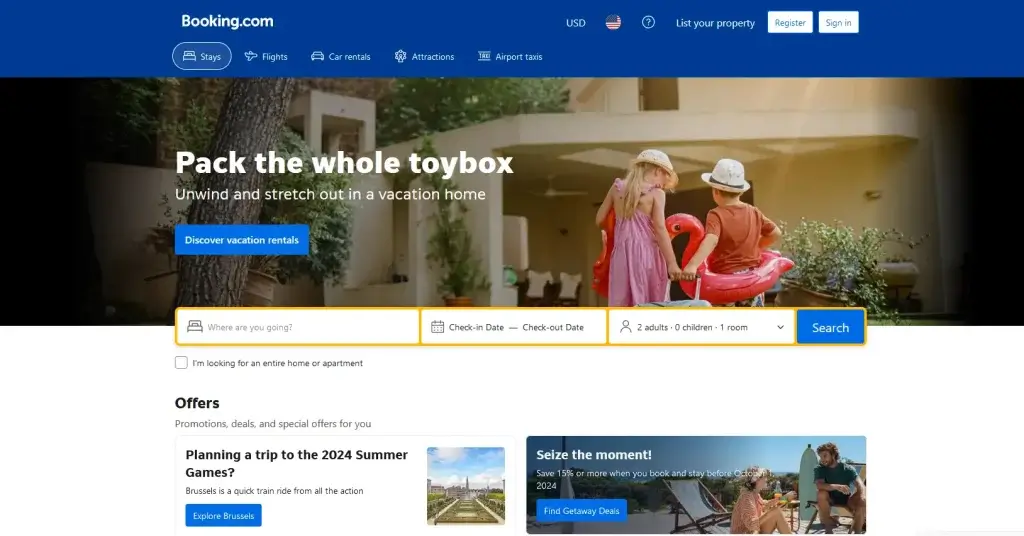Introduction to How do I make a travel itinerary UK?
Are you excited about visiting the UK but unsure where to start with your planning? The question how do I make a travel itinerary UK often plagues even the most seasoned travelers. Fear not, because this comprehensive guide will walk you through creating an itinerary that captures the essence of the UK. We’ll help you navigate through historic landmarks, picturesque villages, and vibrant cities, making your journey both enjoyable and unforgettable.
What is a Travel Itinerary?

A travel itinerary is essentially a detailed plan or schedule of your trip, outlining the destinations you’ll visit, the activities you’ll partake in, and the transportation and accommodations you’ll need. It serves as a roadmap for your journey, providing a clear outline of your travel plans from start to finish.
Think of a travel itinerary as a comprehensive guide that helps you stay organized and make the most of your time while traveling. It typically includes important details such as dates, times, locations, and reservations, ensuring that you have all the information you need at your fingertips.
A well-crafted travel itinerary allows you to:
- Stay Organized: By mapping out your trip in advance, you can keep track of all your travel plans and reservations, ensuring that nothing falls through the cracks.
- Maximize Your Time: A detailed itinerary helps you make the most of your time at each destination, allowing you to prioritize activities and attractions based on your interests and preferences.
- Budget Effectively: By planning ahead and outlining your expenses, you can budget effectively for your trip, ensuring that you stay within your financial means.
- Reduce Stress: Traveling can be stressful, especially when visiting unfamiliar destinations. A well-planned itinerary helps alleviate stress by providing a clear plan of action and ensuring that you’re prepared for every step of your journey.
Why You Need a Travel Itinerary for the UK

Planning a trip to the United Kingdom is an exciting endeavor, but it can also be overwhelming without a well-structured travel itinerary. Here’s why having a detailed itinerary is essential for your UK adventure:
- Maximizing Your Time: The UK is filled with a plethora of attractions, from iconic landmarks like Big Ben and the Tower of London to breathtaking natural landscapes in the Lake District and Scottish Highlands. With so much to see and do, having a travel itinerary helps you prioritize your must-visit destinations and activities. By planning ahead, you can ensure that you make the most of your time in the UK and don’t miss out on any must-see attractions.
- Staying Organized: A travel itinerary serves as a roadmap for your journey, keeping you organized and on track throughout your trip. It outlines your travel plans, including transportation, accommodations, and activities, clearly and concisely. This helps prevent any last-minute scrambling or confusion and allows you to focus on enjoying your UK adventure.
- Budgeting Effectively: Traveling can be expensive, especially in a country like the UK where costs can add up quickly. A well-planned itinerary helps you budget effectively by outlining your anticipated expenses for transportation, accommodations, meals, and activities. This allows you to allocate your funds wisely and avoid overspending during your trip.
- Booking Accommodations and Transportation in Advance: The UK is a popular tourist destination, especially during peak travel seasons. By having a travel itinerary in place, you can book your accommodations and transportation well in advance, ensuring that you secure the best prices and availability. This is particularly important for popular tourist destinations like London, where hotels and attractions can fill up quickly.
- Exploring Beyond the Tourist Hotspots: While iconic landmarks and tourist attractions are undoubtedly worth a visit, some of the best experiences in the UK can be found off the beaten path. A travel itinerary allows you to plan excursions to lesser-known destinations and hidden gems, allowing you to immerse yourself in the local culture and discover unique experiences that most tourists overlook.
Researching Your Destination
Researching your destination is a crucial step in planning a successful trip to the United Kingdom. Here’s why it’s essential and how to go about it:
Why Researching Your Destination is Important:
- Understanding the Culture: The UK is known for its rich history, diverse culture, and unique traditions. Researching your destination allows you to gain insight into the local culture, customs, and etiquette, helping you navigate your surroundings with respect and sensitivity.
- Identifying Must-See Attractions: From iconic landmarks like the Tower of London to hidden gems off the beaten path, the UK offers a wide range of attractions to explore. Researching your destination helps you identify must-see attractions and prioritize your itinerary based on your interests and preferences.
- Planning Your Itinerary: A well-planned itinerary is essential for making the most of your time in the UK. By researching your destination, you can plan your itinerary strategically, ensuring that you allocate your time wisely and don’t miss out on any key experiences or attractions.
- Budgeting and Financial Planning: Traveling to the UK can be expensive, especially in popular tourist destinations like London. Researching your destination allows you to budget effectively by estimating the cost of accommodations, meals, transportation, and activities in advance.
- Safety and Security: While the UK is generally a safe destination for travelers, it’s essential to be aware of any potential safety concerns or travel advisories in your chosen destination. Researching your destination allows you to stay informed about local safety and security conditions and take necessary precautions to ensure your well-being.
How to Research Your Destination:


- Travel Guides and Websites: Start by exploring travel guides and websites dedicated to the UK, such as Lonely Planet, Rick Steves’ Europe, and VisitBritain. These resources provide comprehensive information about destinations, attractions, accommodations, and travel tips for visitors to the UK.
- Blogs and Online Forums: Blogs and online forums are valuable sources of firsthand experiences and insider tips from fellow travelers who have visited the UK. Look for travel blogs and forums where you can read about other travelers’ experiences, ask questions, and seek recommendations for your trip.
- Official Tourism Websites: Visit the official tourism websites of your chosen destinations in the UK, such as VisitLondon, VisitScotland, and VisitWales. These websites offer up-to-date information about attractions, events, accommodations, and travel services, as well as practical advice for visitors.
- Local Events and Festivals: Research local events and festivals happening during your visit to the UK. Attending cultural events, festivals, and celebrations is a great way to immerse yourself in the local culture and experience the vibrant atmosphere of your destination.
- Social Media and Travel Apps: Follow travel influencers and hashtags related to the UK on social media platforms like Instagram, Twitter, and Facebook. Travel apps like TripAdvisor and Yelp can also provide valuable insights and reviews of attractions, restaurants, and accommodations in your chosen destination.
Setting Your Travel Goals


Setting your travel goals is a crucial step in planning a fulfilling and enjoyable trip to the United Kingdom. Here’s why it’s important and how to go about it:
Why Set Travel Goals:
- Clarify Your Priorities: Setting travel goals helps you clarify what you want to achieve and experience during your trip to the UK. Whether you’re interested in exploring historic landmarks, immersing yourself in local culture, or enjoying outdoor adventures, defining your goals helps you prioritize your activities and make the most of your time abroad.
- Stay Focused and Motivated: Traveling to a new destination can be overwhelming, especially in a diverse and dynamic country like the UK. Setting clear travel goals helps you stay focused and motivated throughout your trip, ensuring that you remain committed to your objectives and make the most of every opportunity.
- Tailor Your Itinerary: Once you’ve identified your travel goals, you can tailor your itinerary to align with your interests and preferences. Whether you’re planning a city break in London, a road trip through the Scottish Highlands, or a cultural exploration of Wales, your goals serve as a roadmap for planning your activities and experiences.
- Create Meaningful Memories: By setting meaningful travel goals, you can create lasting memories and experiences that resonate with you long after your trip has ended. Whether it’s visiting iconic landmarks, meeting locals, or trying new foods, achieving your travel goals allows you to create meaningful connections and experiences that enrich your life.
How to Set Travel Goals:

- Reflect on Your Interests and Passions: Start by reflecting on your interests, passions, and aspirations. What are you most excited about experiencing during your trip to the UK? Whether it’s exploring historic sites, enjoying outdoor activities, or indulging in culinary delights, identify what matters most to you and use it as a guide for setting your travel goals.
- Research Your Destination: Research your chosen destinations in the UK and familiarize yourself with the attractions, activities, and experiences available. Consider what you want to see and do in each destination, as well as any specific experiences or landmarks you don’t want to miss. Use this information to inform your travel goals and priorities.
- Set Specific and Achievable Goals: When setting travel goals, be specific and realistic about what you want to achieve. Instead of vague goals like “see as much as possible,” aim for specific objectives such as visiting three iconic landmarks in London, attending a traditional Scottish ceilidh, or hiking to a scenic viewpoint in the Lake District. Setting achievable goals ensures that you stay focused and motivated throughout your trip.
- Prioritize Your Goals: With so much to see and do in the UK, it’s essential to prioritize your travel goals based on your interests and time constraints. Identify your top priorities and focus on achieving those goals first, then allocate additional time for secondary objectives and spontaneous experiences.
- Be Flexible and Open-Minded: While it’s essential to set travel goals, it’s equally important to remain flexible and open-minded during your trip. Embrace unexpected opportunities and experiences that may arise along the way, and don’t be afraid to adjust your plans as needed. Remember that travel is as much about the journey as it is about reaching your destination.
Creating a Flexible Itinerary
Creating a flexible itinerary is essential for ensuring that you have a well-rounded and enjoyable trip to the United Kingdom. Here’s why it’s important and how to go about it:
Why Create a Flexible Itinerary:
- Embrace Spontaneity: Traveling to a new destination is full of surprises and unexpected discoveries. By creating a flexible itinerary, you can embrace spontaneity and allow room for serendipitous experiences that may arise along the way. Whether it’s stumbling upon a charming local market or joining an impromptu walking tour, flexibility allows you to make the most of your travel adventures.
- Adapt to Changing Circumstances: No matter how well you plan your trip, unexpected events and circumstances can arise that may require adjustments to your itinerary. Whether it’s inclement weather, transportation delays, or sudden closures of attractions, having a flexible itinerary allows you to adapt to changing circumstances without feeling stressed or overwhelmed.
- Maximize Your Options: The United Kingdom offers a wide range of attractions, activities, and experiences to suit every interest and preference. By creating a flexible itinerary, you can maximize your options and take advantage of opportunities as they arise. Whether you’re interested in exploring historic landmarks, enjoying outdoor adventures, or immersing yourself in local culture, flexibility allows you to tailor your itinerary to suit your evolving interests and preferences.

How to Create a Flexible Itinerary:
- Focus on Themes or Regions: Instead of planning your itinerary day by day, consider organizing it around themes or regions. For example, you could dedicate one day to exploring historic landmarks in London, another day to scenic drives in the Cotswolds, and another day to culinary adventures in Edinburgh. This allows you to maintain a loose structure while still allowing for flexibility within each theme or region.
- Include Buffer Days: When planning your itinerary, be sure to include buffer days or free days where no specific activities are planned. These buffer days allow you to rest and recharge, as well as take advantage of any spontaneous opportunities that may arise. Use these days to explore local neighborhoods, relax in parks, or simply wander and see where the day takes you.
- Prioritize Must-See Attractions: While flexibility is important, it’s also essential to prioritize your must-see attractions and experiences. Identify the top attractions or activities that you don’t want to miss and make sure to include them in your itinerary. By prioritizing these key experiences, you can ensure that you make the most of your time in the UK while still allowing for flexibility in your schedule.
- Be Open to Change: Finally, be open to change and willing to adjust your plans as needed. Whether it’s swapping out activities, rearranging your schedule, or adding new experiences on the fly, flexibility is key to making the most of your travel adventures. Embrace the unexpected and allow yourself to go with the flow, knowing that some of the best travel experiences are unplanned.
Structuring Your Itinerary
Structuring your itinerary is crucial for maximizing your time and ensuring a well-balanced travel experience in the United Kingdom. Here’s how to effectively structure your itinerary:
Why Structure Your Itinerary:
- Optimize Time Management: Structuring your itinerary allows you to organize your time efficiently and make the most of your trip. By dividing your days into manageable chunks and allocating specific activities to each day, you can ensure that you cover all the highlights of your chosen destinations without feeling rushed or overwhelmed.
- Prioritize Must-See Attractions: The UK is brimming with iconic landmarks, cultural sites, and natural wonders. Structuring your itinerary helps you prioritize must-see attractions and ensure that you don’t miss out on any key experiences. By mapping out your days in advance, you can make sure to include all the highlights on your list while still allowing for flexibility and spontaneity.
- Maintain a Balanced Schedule: A well-structured itinerary allows you to maintain a balanced schedule that includes a mix of sightseeing, relaxation, and leisure activities. By planning your days strategically, you can avoid burnout and ensure that you have time to rest and recharge between adventures. Whether it’s exploring historic landmarks, enjoying outdoor excursions, or indulging in local cuisine, structuring your itinerary helps you strike the perfect balance.
How to Structure Your Itinerary:
- Divide Your Days: Start by dividing your trip into days or segments based on the length of your stay and the destinations you plan to visit. Consider dedicating each day to a specific theme or activity, such as sightseeing, cultural exploration, or outdoor adventures. This helps you maintain focus and organization while ensuring that you cover all the highlights of your trip.
- Allocate Time for Travel: When structuring your itinerary, be sure to allocate time for travel between destinations. Whether you’re traveling by train, bus, or car, factor in travel time and allow for buffer periods to account for delays or unexpected detours. This ensures that you arrive at your destinations on time and allows for a smooth and seamless travel experience.
- Prioritize Must-See Attractions: Identify the must-see attractions and experiences that you don’t want to miss during your trip to the UK. Whether it’s visiting iconic landmarks like the Tower of London, exploring historic cities like Edinburgh, or hiking in the Lake District, make sure to prioritize these key experiences and allocate sufficient time for each.
- Balance Activities: Maintain a balanced schedule by including a mix of sightseeing, relaxation, and leisure activities in your itinerary. Plan to alternate between busy days filled with sightseeing and more relaxed days spent exploring local neighborhoods, enjoying leisurely meals, or simply soaking up the atmosphere. This helps prevent burnout and ensures that you have a well-rounded travel experience.
- Allow for Flexibility: While structure is important, it’s also essential to allow for flexibility in your itinerary. Leave room for spontaneous discoveries, last-minute changes, and unexpected opportunities that may arise along the way. Embrace the joys of travel and be open to adjusting your plans as needed, knowing that some of the best experiences happen when you least expect them.
Transportation and Accommodation
Planning transportation and accommodation is crucial for a successful trip to the United Kingdom. Here’s how to effectively plan both:
Transportation:
- Choose the Right Mode of Transportation: Depending on your itinerary and budget, consider the most suitable mode of transportation for traveling within the UK. Options include trains, buses, rental cars, and domestic flights. Research the pros and cons of each option, taking into account factors such as cost, convenience, and travel time.
- Book Tickets in Advance: To secure the best prices and availability, it’s advisable to book your transportation tickets in advance, especially for trains and domestic flights. Many train operators offer discounted advance fares, so plan your itinerary early and book tickets as soon as possible to save money and guarantee your seats.
- Consider Rail Passes: If you plan to travel extensively by train in the UK, consider purchasing a rail pass such as the BritRail Pass or the Interrail Pass. These passes offer unlimited travel on the UK’s national rail network for a set number of days, providing flexibility and cost savings for travelers who plan to visit multiple destinations.
- Plan for Local Transportation: In addition to intercity travel, consider how you’ll get around within each destination. Major cities like London, Edinburgh, and Manchester have extensive public transportation networks, including buses, trams, and underground trains. Research local transportation options and purchase any necessary tickets or passes in advance to streamline your travel experience.
Accommodation:
- Determine Your Accommodation Preferences: Consider your preferences and budget when choosing accommodation options for your trip. Options range from luxury hotels and boutique guesthouses to budget-friendly hostels and vacation rentals. Decide whether you prefer central locations, amenities such as breakfast or Wi-Fi, and the type of accommodation that best suits your travel style.
- Research Accommodation Options: Use online booking platforms such as Booking.com, Airbnb, and Expedia to research accommodation options in your chosen destinations. Read reviews from previous guests, compare prices and amenities, and consider factors such as location, proximity to attractions, and cancellation policies before making a reservation.
- Book Accommodation in Advance: To ensure availability and secure the best rates, it’s recommended to book your accommodation in advance, especially during peak travel seasons or popular events. Keep in mind that some properties offer flexible cancellation policies, allowing you to modify or cancel your reservation without penalty if your plans change.
- Consider Alternative Accommodation: In addition to traditional hotels and guesthouses, consider alternative accommodation options such as vacation rentals, bed and breakfasts, or serviced apartments. These options often provide a more personalized experience and can be a cost-effective choice for travelers, especially those staying longer-term or traveling in groups.
- Check for Special Offers and Discounts: Before booking accommodation, check for special offers, promotions, or discounts that may be available. Many hotels and booking platforms offer deals such as early bird discounts, last-minute deals, or loyalty rewards programs that can help you save money on your accommodation costs.
Budgeting and Cost Considerations
Budgeting effectively is essential for planning a successful trip to the United Kingdom. Here’s how to budget and consider costs for your travel:
Why Budgeting is Important:
- Manage Expenses: Budgeting allows you to manage your expenses effectively and ensure that you stay within your financial means during your trip to the UK. By setting a budget for transportation, accommodation, meals, activities, and other expenses, you can avoid overspending and enjoy your trip without financial stress.
- Prioritize Spending: Setting a budget helps you prioritize your spending and allocate funds to the aspects of your trip that matter most to you. Whether you prioritize sightseeing, dining experiences, or souvenir shopping, budgeting allows you to allocate funds accordingly and make the most of your travel budget.
- Plan for Unexpected Expenses: Traveling often involves unexpected expenses such as transportation delays, medical emergencies, or spontaneous activities. By budgeting for contingencies and setting aside a buffer for unexpected expenses, you can handle unforeseen circumstances without derailing your travel plans or going over budget.
- Maximize Value: Budgeting helps you make informed decisions about how to maximize the value of your travel budget. By researching options, comparing prices, and taking advantage of discounts and special offers, you can stretch your budget further and enjoy more experiences during your trip to the UK.
How to Budget and Consider Costs:
- Estimate Expenses: Start by estimating the total cost of your trip, including transportation, accommodation, meals, activities, and other expenses. Research average costs for your chosen destinations in the UK and use online tools or budgeting apps to help you estimate expenses accurately.
- Set a Travel Budget: Based on your estimated expenses, set a realistic travel budget that aligns with your financial goals and priorities. Consider factors such as the length of your trip, your travel style, and any special experiences or activities you want to include in your itinerary.
- Break Down Costs: Break down your budget into categories such as transportation, accommodation, meals, activities, and miscellaneous expenses. Allocate funds to each category based on your priorities and preferences, ensuring that you have enough funds for essential expenses while still leaving room for discretionary spending.
- Research Cost-Saving Strategies: Research cost-saving strategies and tips for traveling in the UK, such as booking transportation and accommodation in advance, traveling during off-peak seasons, taking advantage of discounts and promotions, and using public transportation or walking to get around.
- Track Expenses: Keep track of your expenses throughout your trip to monitor your spending and stay within your budget. Use a budgeting app, spreadsheet, or notebook to record expenses as you go, and review your budget regularly to ensure that you’re staying on track.
- Plan for Contingencies: Set aside a buffer for unexpected expenses and emergencies, such as medical costs, lost or stolen belongings, or changes to your travel plans. Having a contingency fund allows you to handle unforeseen circumstances without disrupting your trip or straining your finances.
Packing Tips and Essentials
Packing efficiently and bringing the right essentials is essential for a smooth and enjoyable trip to the United Kingdom. Here are some packing tips and essentials to consider:
Packing Tips:
- Check the Weather: Before you start packing, check the weather forecast for your destination(s) in the UK. This will help you pack appropriate clothing and accessories for the expected conditions, whether it’s rain gear for the unpredictable British weather or sunscreen for sunny days.
- Pack Light: Traveling with a lighter, more manageable suitcase or backpack can make navigating airports, train stations, and hotels much easier. Aim to pack only the essentials and versatile clothing items that can be mixed and matched for different outfits.
- Roll Your Clothes: Rolling your clothes instead of folding them can help save space in your luggage and prevent wrinkles. This packing technique also makes it easier to see and access your clothing items without having to unpack everything.
- Use Packing Cubes: Packing cubes are handy organizational tools that can help you compartmentalize your belongings and keep your suitcase tidy. Use them to separate clothing items, accessories, toiletries, and other essentials, making it easier to find what you need during your trip.
- Pack Versatile Clothing: Choose clothing items that are versatile, comfortable, and appropriate for a variety of activities and occasions. Opt for lightweight, moisture-wicking fabrics that are easy to layer for changing weather conditions.
- Don’t Forget Essential Documents: Make sure to pack essential travel documents such as your passport, visa (if required), travel insurance information, flight/train tickets, accommodation reservations, and any necessary identification or permits.
Essential Items to Pack:
- Travel Adapter and Converter: The UK uses a different electrical outlet and voltage system than many other countries. Bring a travel adapter and converter to ensure that you can charge your electronic devices safely.
- Comfortable Walking Shoes: Whether you’re exploring historic cities, hiking in the countryside, or strolling along coastal paths, comfortable walking shoes are a must-have for exploring the UK’s diverse landscapes.
- Rain Gear: The UK is known for its unpredictable weather, so be prepared for rain showers at any time. Pack a lightweight waterproof jacket, umbrella, and waterproof footwear to stay dry and comfortable.
- Daypack or Backpack: A small daypack or backpack is handy for carrying essentials such as water bottles, snacks, a camera, and guidebooks during day trips and sightseeing excursions.
- Reusable Water Bottle: Stay hydrated while reducing waste by bringing a reusable water bottle. Many cities in the UK have public water fountains or refill stations where you can top up your bottle for free.
- First Aid Kit: Pack a basic first aid kit with essentials such as bandages, pain relievers, antiseptic wipes, insect repellent, and any necessary medications you may need during your trip.
- Travel-Sized Toiletries: Bring travel-sized toiletries to save space in your luggage and comply with TSA regulations. Essentials include toothpaste, toothbrush, shampoo, conditioner, body wash, and sunscreen.
- Travel Guidebook or Map: While smartphones and GPS navigation are handy, it’s always a good idea to carry a physical travel guidebook or map as a backup, especially in areas with limited cell service or internet access.
Additional Tips:
- Pack Layered Clothing: Layering allows you to adjust your clothing for changing weather conditions and temperature fluctuations throughout the day.
- Leave Room for Souvenirs: If you plan to do some shopping or pick up souvenirs during your trip, leave some space in your luggage to accommodate your purchases.
- Pack Prescription Medications: If you take prescription medications, be sure to pack an ample supply for the duration of your trip, along with a copy of your prescription and any necessary medical documentation.
Safety and Health Precautions
Ensuring your safety and well-being is paramount when traveling to any destination, including the United Kingdom. Here are some essential safety and health precautions to keep in mind:
Safety Precautions:
- Stay Informed: Before your trip, familiarize yourself with local safety and security conditions in the UK. Stay informed about any travel advisories, safety alerts, or potential risks in your chosen destinations.
- Keep Valuables Secure: Take precautions to safeguard your valuables, including passports, cash, credit cards, and electronics. Use hotel safes or secure lockers to store valuables when not in use, and avoid carrying large sums of cash or wearing expensive jewelry in public.
- Be Aware of Your Surroundings: Stay vigilant and aware of your surroundings, especially in crowded tourist areas, public transportation hubs, and urban areas. Be mindful of pickpockets, scams, and other common tourist traps, and trust your instincts if something feels off.
- Follow Local Laws and Customs: Respect local laws, customs, and cultural norms when traveling in the UK. Familiarize yourself with basic etiquette, such as queuing patiently, tipping practices, and appropriate behavior in public places.
- Stay Connected: Keep your mobile phone charged and stay connected with friends, family, or travel companions during your trip. Share your itinerary and contact information with trusted individuals, and check in regularly to let them know your whereabouts.
- Emergency Contacts: Keep a list of emergency contacts handy, including local emergency services, embassy or consulate contact information, and the contact details of your travel insurance provider.
Health Precautions:
- Travel Insurance: Purchase comprehensive travel insurance that includes coverage for medical emergencies, trip cancellations, and travel disruptions. Make sure to review the policy terms and coverage limits before your trip.
- Stay Hydrated: Drink plenty of water to stay hydrated, especially when traveling long distances or engaging in outdoor activities. Carry a refillable water bottle and refill it regularly, especially during hot weather or physical exertion.
- Protect Against Sun Exposure: Apply sunscreen with a high SPF rating and wear protective clothing, sunglasses, and a wide-brimmed hat to protect against harmful UV rays. Reapply sunscreen regularly, especially if you’re spending time outdoors.
- Practice Good Hygiene: Wash your hands frequently with soap and water, especially before eating or after using the restroom. Carry hand sanitizer for situations where soap and water are not readily available, and avoid touching your face to reduce the risk of illness.
- Seek Medical Attention if Needed: If you experience any health concerns or medical emergencies during your trip, seek prompt medical attention. Know the location of nearby hospitals, clinics, and pharmacies, and carry any necessary medications or medical supplies with you.
- COVID-19 Precautions: Follow local guidelines and regulations related to COVID-19, including mask mandates, social distancing measures, and vaccination requirements. Stay informed about any travel restrictions or quarantine protocols that may be in place during your visit.
Additional Tips:
- Stay Well-Rested: Get plenty of rest and prioritize sleep during your trip to maintain your physical and mental well-being.
- Stay Active: Stay active and incorporate physical activity into your daily routine, whether it’s exploring on foot, hiking, or participating in recreational activities.
- Stay Connected: Stay connected with loved ones back home and share your travel experiences with them, whether through phone calls, messages, or social media updates.
Exploring Beyond Tourist Hotspots
Exploring beyond tourist hotspots is a fantastic way to discover hidden gems, experience authentic local culture, and escape the crowds during your trip to the United Kingdom. Here’s how to explore off-the-beaten-path destinations and make the most of your travel experience:
Why Explore Beyond Tourist Hotspots:
- Discover Authentic Culture: Venturing off the beaten path allows you to immerse yourself in authentic local culture and traditions that may not be as readily accessible in touristy areas. You’ll have the opportunity to interact with locals, sample regional cuisine, and experience everyday life in the UK.
- Escape the Crowds: Popular tourist attractions can often be overcrowded, especially during peak travel seasons. Exploring lesser-known destinations and hidden gems allows you to escape the crowds, enjoy a more peaceful atmosphere, and have a more intimate travel experience.
- Find Hidden Gems: The UK is full of hidden gems waiting to be discovered, from picturesque villages and scenic countryside to historic landmarks and cultural sites off the beaten path. By exploring beyond tourist hotspots, you’ll have the chance to uncover hidden gems that most tourists overlook.
- Support Local Communities: Visiting lesser-known destinations and patronizing locally-owned businesses helps support local communities and economies. Your tourism dollars can have a positive impact on small businesses, artisans, and cultural initiatives in off-the-beaten-path areas.
How to Explore Beyond Tourist Hotspots:
- Research Off-the-Beaten-Path Destinations: Do your research to uncover off-the-beaten-path destinations and hidden gems in the UK. Look for lesser-known towns, villages, natural attractions, and cultural sites that are not as heavily promoted in tourist guidebooks or travel websites.
- Seek Local Recommendations: Tap into local knowledge by seeking recommendations from residents, hotel staff, tour guides, and fellow travelers. Locals often have insider tips on hidden gems, off-the-beaten-path attractions, and authentic experiences that you won’t find in guidebooks.
- Embrace Spontaneity: Allow yourself to be spontaneous and open to unexpected opportunities that may arise during your travels. Serendipitous discoveries, chance encounters, and spontaneous adventures often lead to some of the most memorable travel experiences.
- Explore Rural Areas and Countryside: Venture into rural areas and countryside regions to experience the natural beauty and tranquility of the UK’s landscapes. Explore national parks, nature reserves, coastal trails, and scenic countryside villages for a peaceful escape from the hustle and bustle of city life.
- Take Public Transportation: Use public transportation to explore beyond major cities and tourist hubs. Trains, buses, and ferries provide convenient access to off-the-beaten-path destinations and allow you to experience the local culture and scenery along the way.
- Participate in Local Events and Festivals: Check local event calendars for festivals, markets, and cultural events happening during your visit. Participating in local events is a great way to experience authentic culture, connect with locals, and immerse yourself in the community spirit.
Additional Tips:
- Be Respectful: Respect local customs, traditions, and the environment when exploring off-the-beaten-path destinations. Practice responsible tourism by minimizing your impact on natural areas, supporting local businesses, and interacting respectfully with locals.
- Stay Safe: Exercise caution and common sense when exploring unfamiliar areas, especially in rural or remote regions. Stay informed about safety precautions and potential risks, and trust your instincts if something doesn’t feel right.
- Document Your Adventures: Capture memories of your off-the-beaten-path adventures through photos, journaling, or blogging. Share your experiences with friends and fellow travelers to inspire others to explore beyond tourist hotspots.
Conclusion:
Exploring beyond tourist hotspots in the United Kingdom offers travelers a wealth of enriching experiences, from discovering hidden gems to immersing oneself in authentic local culture. By venturing off the beaten path, travelers can escape the crowds, uncover lesser-known destinations, and forge meaningful connections with the communities they encounter.
Whether it’s exploring picturesque countryside villages, hiking along scenic coastal trails, or participating in local festivals and events, the UK offers endless opportunities for off-the-beaten-path adventures. Embracing spontaneity, seeking local recommendations, and being respectful of local customs and traditions are key to unlocking the true essence of a destination and creating unforgettable travel memories.
As you plan your next trip to the United Kingdom, consider venturing beyond the tourist hotspots and exploring the hidden gems that await off the beaten path. Whether you’re seeking tranquil natural landscapes, vibrant cultural experiences, or simply a break from the hustle and bustle of tourist crowds, the UK offers a wealth of off-the-beaten-path treasures waiting to be discovered.
So pack your bags, lace up your hiking boots, and prepare to embark on a journey of exploration and discovery beyond the tourist hotspots. Your off-the-beaten-path adventure awaits in the United Kingdom, where every turn reveals a new and unexpected delight. Happy travels!

